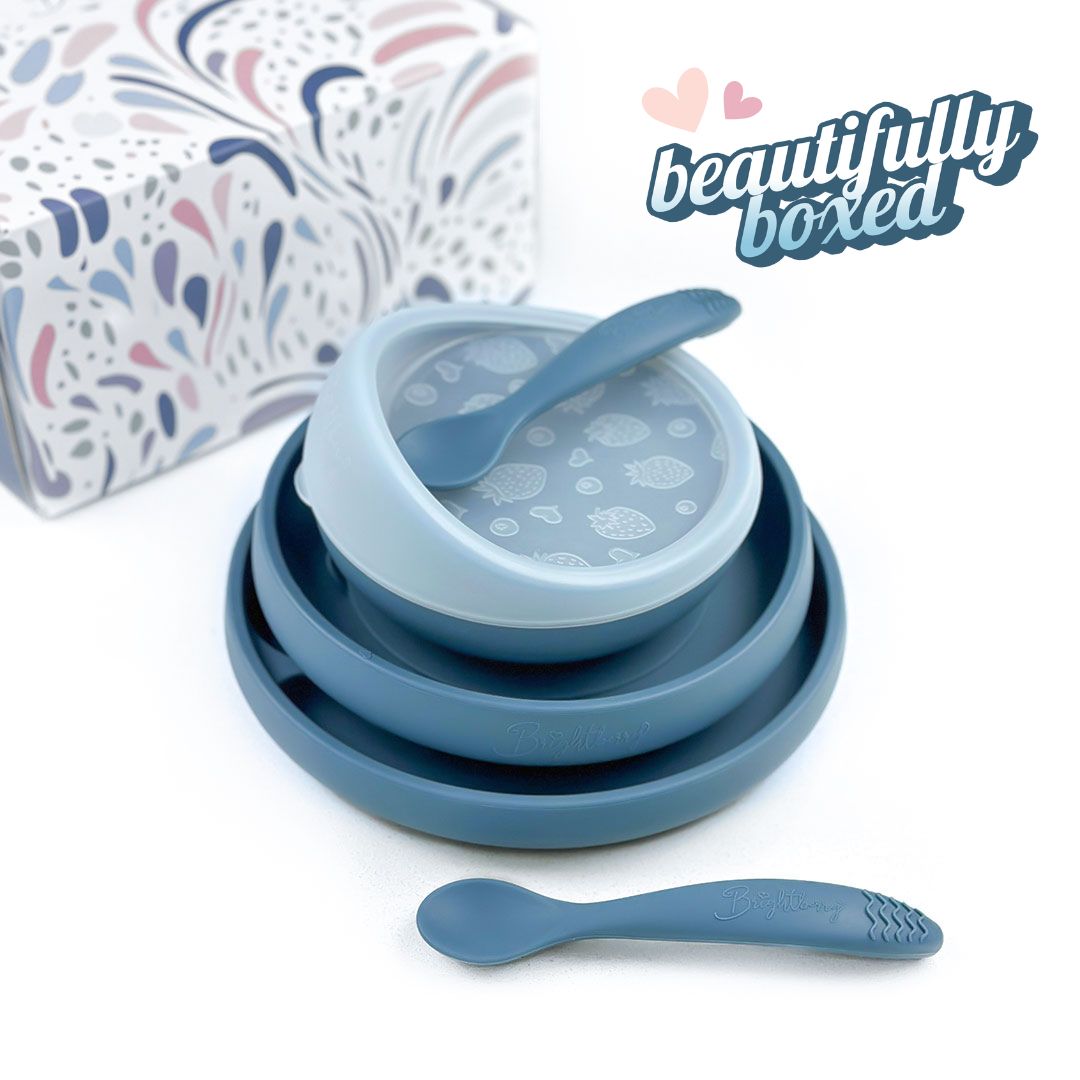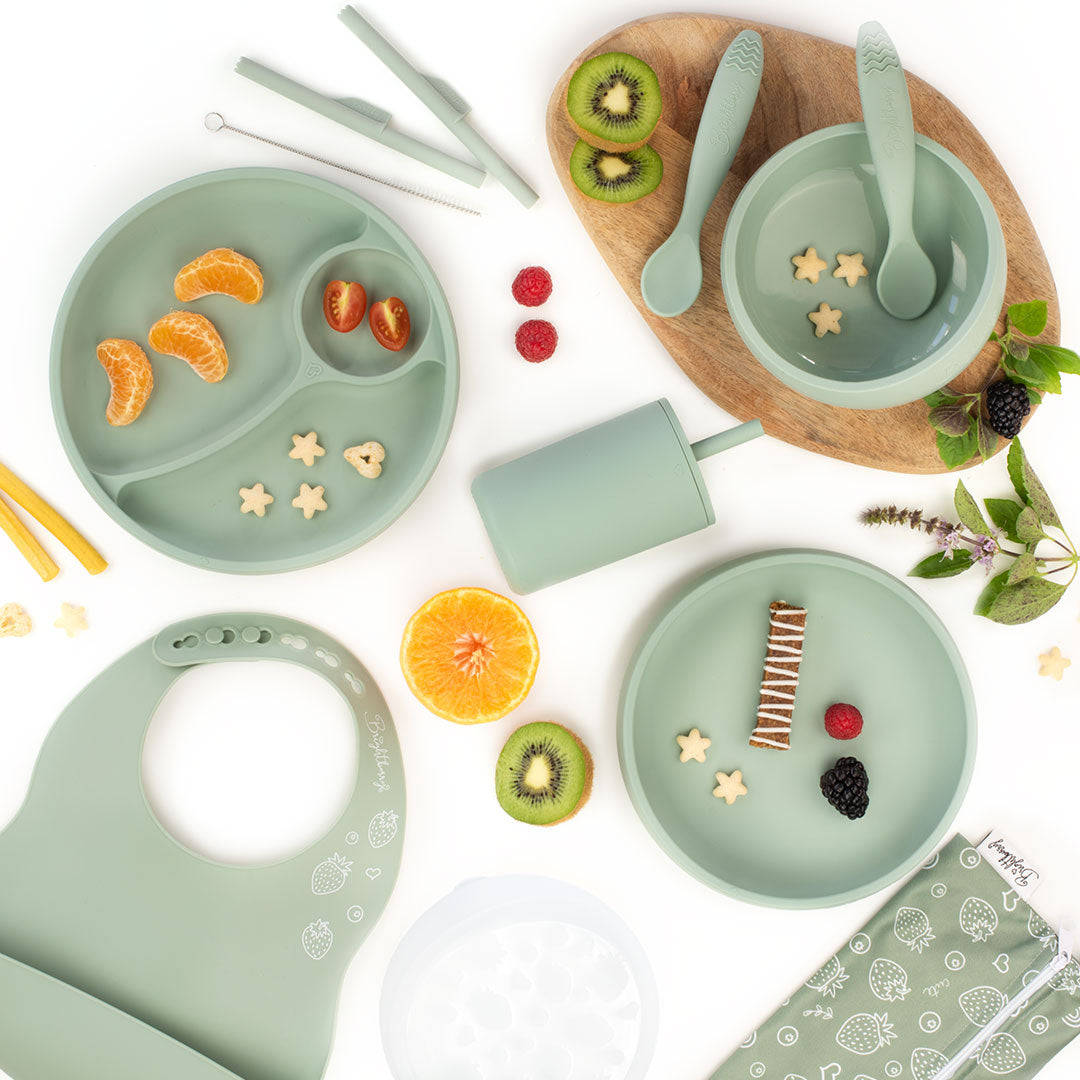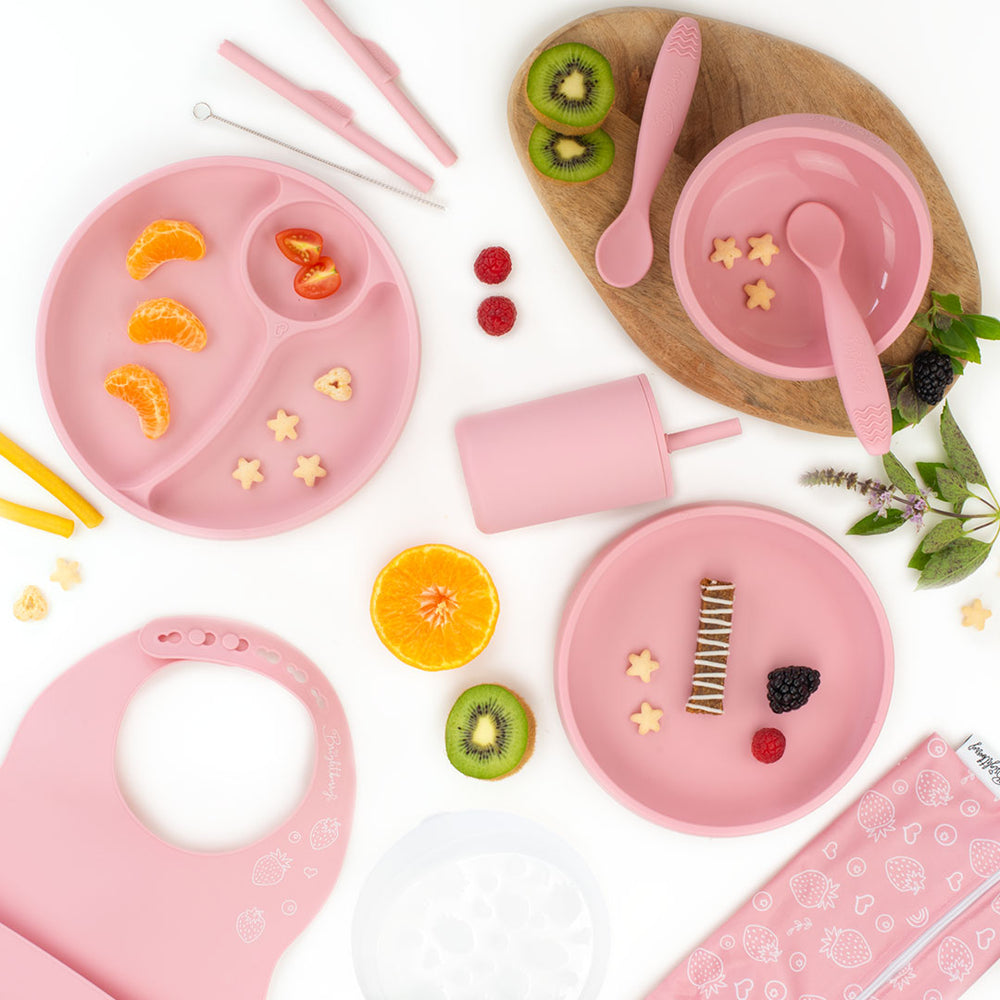5 Ways To Know Your Baby Is Ready For Solid Foods
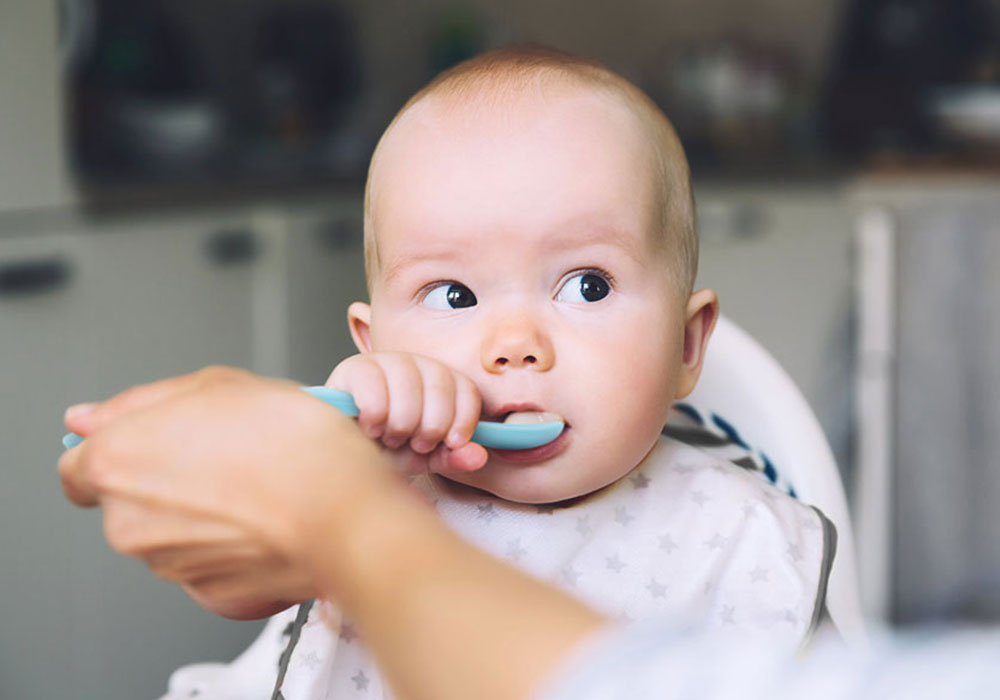
The World Health Organisation recommends exclusively breastfeeding or feeding your child enriched formula until they are around six months of age. However, every child is different, and simply hitting the six-month mark does not necessarily mean it's time to introduce new foods.
Knowing how and when to introduce your baby to solid foods promotes healthy nutrition and supports their overall development. If you try to do it too early, the risk of choking or developing food allergies can increase significantly.
Introducing solid foods at the right time can help your baby's palette expand to include a variety of nutritionally-dense foods so they can grow big and strong. To begin this exciting nutritional journey, you'll want to learn the following:
- The signs your baby will show when it's time to introduce solid foods
- The types and textures of foods and when to introduce them to your baby
- Tools that can help the transition, like a baby feeding sets
How to Know Your Child is Ready to Start Solid Foods
Some babies are ready to start solid foods when their teeth start coming out, or they no longer fall asleep while feeding. While these are developmentally everyday things that happen around six months of age, the following are telltale signs that your child is ready to begin trying complementary solid foods.
They Sit Up Steady
Before incorporating solid foods into your feeding schedule, your baby must control their head and neck independently. Additionally, they should be able to sit up easily alone or with minimal assistance.
Reduced Tongue Thrust
The tongue-thrust reflex is when babies reflexively push food and liquids out of their mouths with their tongues while feeding. This behaviour gradually fades around four to six months, allowing them to move food around in their mouths.
They Grab at Your Food
You don't usually hear babies say their first words before twelve months. However, they still need to communicate with you. When you eat around your baby, they'll begin to show an interest in your food and may even try to reach for it. This is a great indicator to look into getting a baby feeding set of plates and utensils to begin practising the motor skills and coordination of eating like a big kid.
At Least Six Months Old
Though some babies may begin to show some physical signs a bit earlier, it is best to wait until all of them manifest at least six months before introducing solid foods.
Finer Coordination of Hand-to-Mouth Motion
A critical developmental sign to look for around this age is when your baby begins to grab toys or items like baby plates and bring them to their mouths. The pinching motion of holding things with their fingers shows they are ready to try grabbing baby utensils or small bits of soft foods. If they are especially grabby, a baby suction plate is an excellent investment for avoiding wasted food and sprawling messes.
When these signs are present, investing in a high-quality new baby feeding set gift and silicone fresh food feeder will make learning to eat solid foods more fun for your baby and easier for you to clean up afterwards.
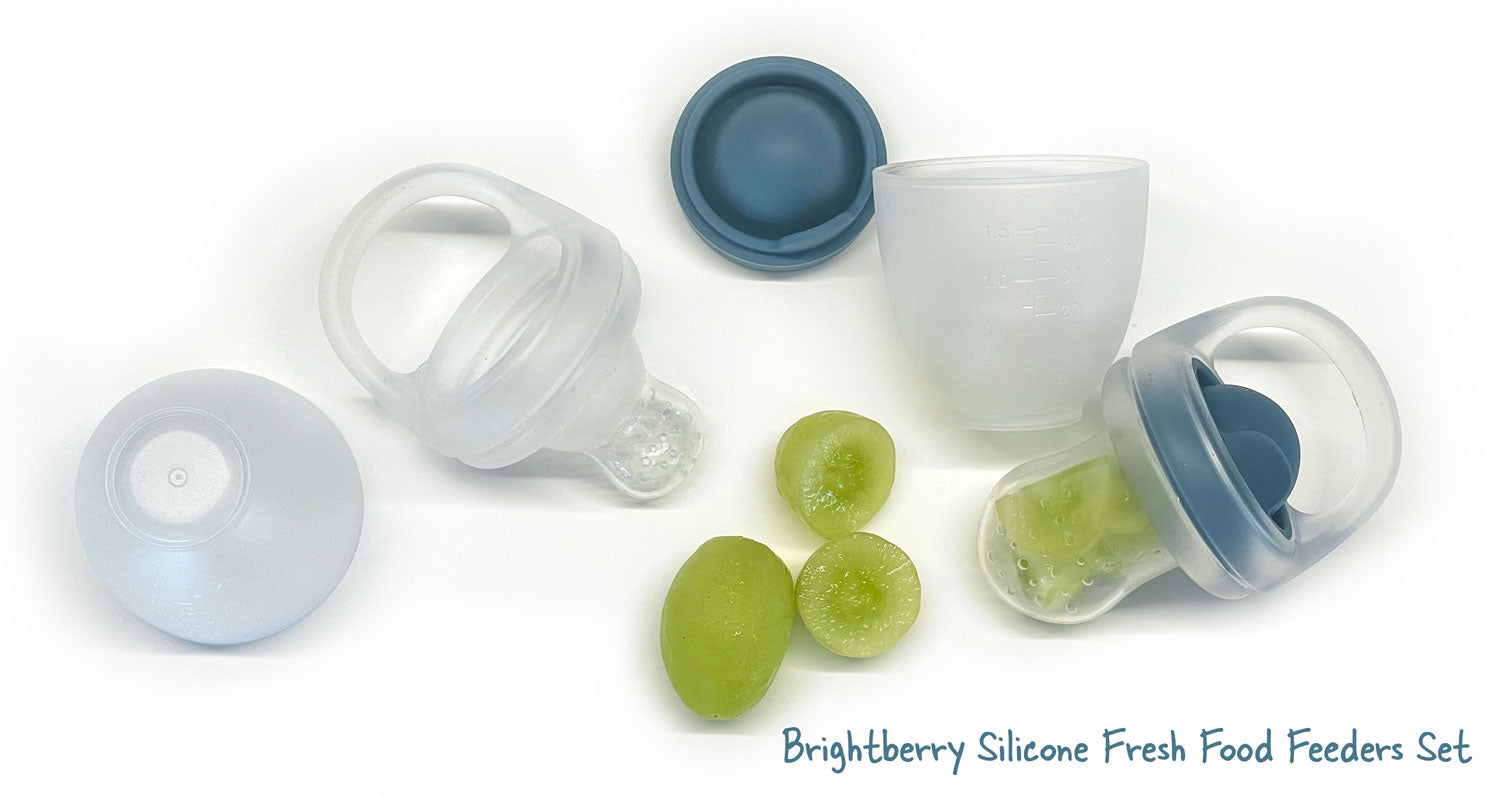
How to Introduce Solid Foods
It is crucial to remember that breast milk or infant formula should be your baby's primary source of nutrition until at least 12 months of age. Before 12 months, solid foods are mainly a way to supplement breastmilk or formula's nutrients and teach your baby how to chew and swallow.
Introducing solids when you and your baby are more relaxed, like after a breastmilk or formula feeding, is recommended. Using specially made baby plates can also make the process more exciting if your child is apprehensive about trying new foods. Adding solid foods to your feeding routine takes patience, caution, and exploration and should never be rushed.
When your baby is between six and eight months, start with small portions (a couple of teaspoons a day is enough) and single-ingredient food items that are easily mashed or pureed and served in a baby bowl. These can include foods such as:
- Steamed/cooked and pureed vegetables or fruit without skins
- Soft and smoothly mashed fresh fruit like mango and avocado or chia pudding
- Enriched single-grain cereals mixed with breastmilk or formula
You can read more about which foods to start with on our blog post: Introducing Solids - The Best First Foods for Babies.
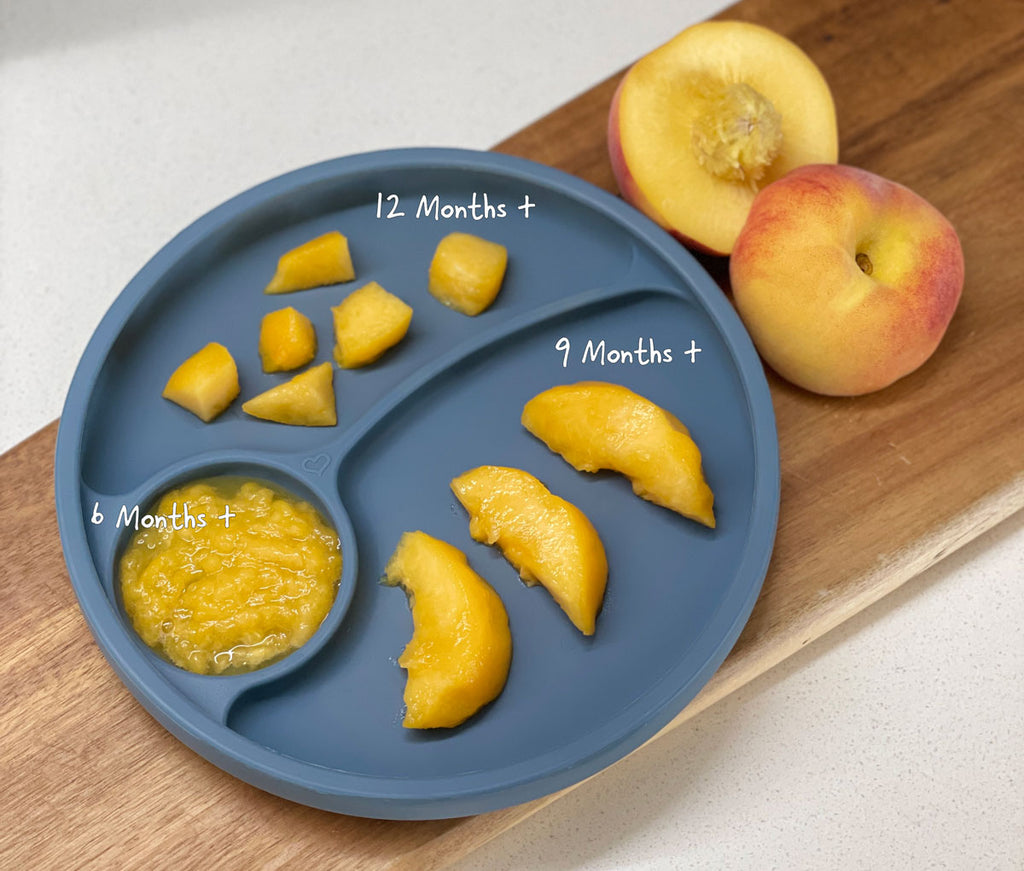
Beginning with blander flavours and softer foods is a great way to ease your baby into exploring the new textures and tastes without overwhelming them. Some parents even recommend it helps them learn that these are good foods before getting into the more appealing sweet fruits and vegetables.
Once they seem more comfortable with purees and mashed foods, you can begin incorporating new textures of solid foods, like finely chopped fruits, vegetables, or bits of meat and pasta. The food should still be soft or well-cooked as your baby's chewing molars don't grow until they're between 12 and 18 months old. However, soft foods of varying textures allow them to practise the motion of chewing, which promotes proper speech development and self-feeding.
When possible, include your baby at the dinner table with the family to eat their food from a baby suction plate or bowl and have them try using utensils from a baby feeding set. Feeding time can be fun and educational because they will mimic your motions and start mastering the coordination of eating.
When you begin incorporating solid foods, it is imperative that you only introduce one new ingredient at a time and observe them. When you go by one food at a time, you can quickly learn if your child is allergic to something. Introducing allergenic foods before they reach 12 months can help reduce the risk of developing an allergy to those foods. The most common allergenic foods include:
- Peanut butter or other kinds of nut butter
- Eggs
- Cow's milk
- Wheat
Babies younger than 12 months should avoid consuming cow's milk as a main drink and lightly cooked eggs. If you notice your child exhibiting signs of an allergic reaction within minutes or a few hours, note what they ate, seek medical advice, or call an ambulance if it is a severe reaction. Be sure to sterilise their baby bowl afterwards if an allergy is present.
Knowing when your baby is ready to try solid foods and the best ways to do so is imperative for promoting their development and cultivating a healthy relationship with food. Watch for the physical signs and developmental milestones so you can be prepared with your high-quality baby feeding set from Brightberry when the time comes.







